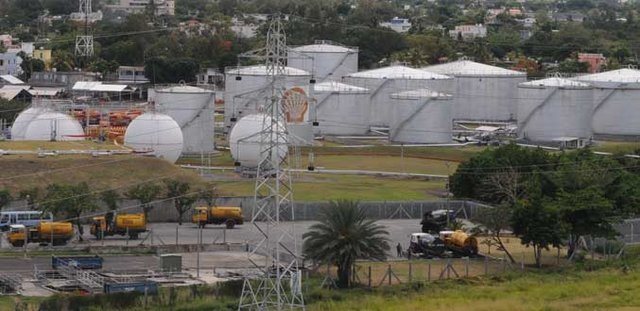Fuel: The government increases its storage capacity slightly, awaiting better

Many service stations had to close their doors on March 3 because they were not resupplied. What would have happened if the boat that keeps us supplied had accused a week late or more? Nobody dares to imagine. For its part, the State Trading Corporation (STC) was quick to react.
Until the government launches its project to build new storage tanks for petroleum products, the STC and the department of Industry and Commerce has identified a number of vessels belonging to private companies and can be used to store the gasoline.
In fact, our storage capacity of gasoline is very worrying indeed the country with a thin reserve, less than a week of consumption between two deliveries. However, the storage capacity of Double Purpose Kerosene (DPK), used as fuel by aircraft, is largely redundant.
Thus, STC identified tanks with a total capacity of 8800 tons for the DPK, which can be transformed to accommodate gasoline. The transformation process was initiated immediately after the events of 2 and 3 March 2011 and an additional capacity of 1200 tons has already been made available to the corporation.
The daily rate of fuel consumption of 300 tons, these new resources is equivalent to 4 days of additional storage. Once all the tanks identified (8800 tonnes) have been processed, the total storage capacity of gasoline will be a little over 60 days of consumption. What we will protect any shortage, even with a delay of two to three weeks in delivery.
Regarding diesel, the situation is not as catastrophic. The storage capacity of the STC for this product (40,000 tons) allows this state agency to have a strategic stockpile of 15 to 20 days between deliveries. The scope is here, very comfortable, according to a Department of Industry and Commerce.
However, as a precautionary measure, the STC will also raise the storage of diesel. 4,850 additional tonnes will be available soon. Again, these are the tanks of the private sector that will be used to avoid possible shortages in the local market.
With regard to heavy oil, a tank of 6500 tons belonging to the Mauritius Molasses Co. Ltd. is being transformed to store this product used primarily for electricity generation by the Central Electricity Board.
Moreover, construction of additional tanks announced in the keynote speech of the government in June 2010 is still in draft form, even if the site has already been identified. Two tanks of 15,000 tonnes and 10,000 tonnes for the storage of petrol and diesel respectively will be constructed at an estimated cost of Rs 750 million. In the best case, they will be delivered at the end of next year.
Until the government can give us a solid guarantee that the distribution of fuel will not be disturbed, hope the tankers managed to avoid pirates, tsunamis or other problems that could jeopardize our economy.


